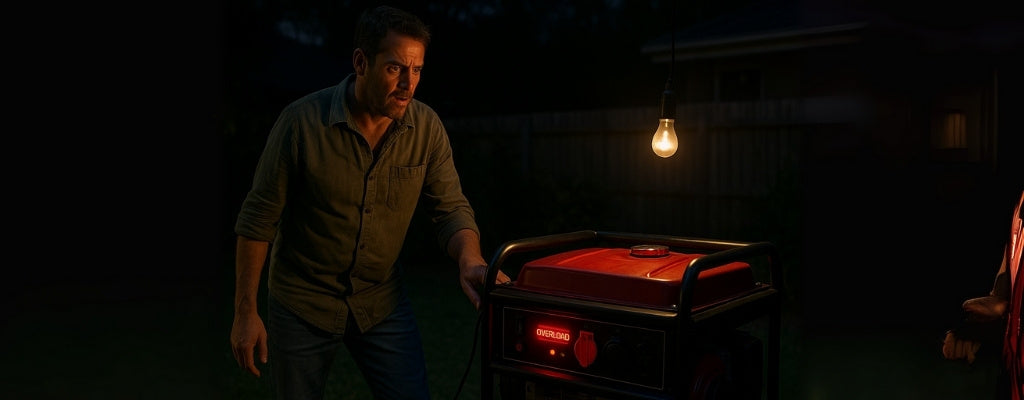
What Are the Indicators of Generator Overloading?
Ever plugged too much into your generator and thought, "She’ll be right"? Not always. The short answer: a generator shows it's overloaded through excess heat, power dips, odd smells, or even sudden shut-offs. Keep reading to catch these warning signs before your generator throws in the towel when you need it most.

What Are the Indicators of Generator Overloading in Diesel Generators?
Overloading a generator—especially a diesel one—can cause some real headaches. It happens when the generator is asked to deliver more power than it's built for. Spotting the signs early can save you from a massive repair bill—or worse, a completely cooked generator.
What Happens if You Overload a Portable Generator?
The Immediate Consequences of Overloading a Portable Generator
When you overload a portable generator, it doesn’t go quietly. You might notice flickering lights, weird clunking noises, or the generator switching off mid-run. Some even flash an overload light or beep an alarm. These are your clues that the poor thing is working overtime and needs a break.
The Long-Term Impact of an Overloaded Portable Generator
Keep pushing your generator past its limits and you’ll wear it out fast. Overloading over time leads to overheating, reduced fuel efficiency, and fried parts like the voltage regulator. You’ll also cut its lifespan short—meaning a costly replacement long before you’d planned.

Generator Overload Protection and the Inverter Generator
Circuit Breakers vs. Inverter Technology
Most modern generators have your back with built-in overload protection. Circuit breakers will trip and cut power to stop things getting worse. Inverter generators take it a step further—they automatically adjust the power and shut down cleanly if things get dicey. They're smarter, safer, and way better at avoiding drama.
What the Generator Overload Light Indicates
That overload light isn’t just for show. It means you’ve asked for too much power, or something’s gone wrong internally. It could be a spike in demand or a deeper issue under the hood. Either way, it’s time to ease the load and give it a reset.

Troubleshooting and Fixing Generator Overloads
So, what if your generator flashes the overload light when there’s nothing plugged in? That’s when you roll up your sleeves.
Why the Generator Overload Light Comes On with Nothing Plugged In
Common Causes of a Generator Overload with Nothing Plugged In
This weird glitch can be down to internal wiring problems, moisture sneaking in, or a dodgy inverter board. Even old fuel or gunked-up internals can throw off the sensors and trigger that warning light.
Troubleshooting an Inverter Generator Overload with Nothing Plugged In
First things first—shut it down and let it cool off. Then check for moisture, dirt, or anything loose inside. If the overload light sticks around, the inverter module might be toast. At that point, it’s best to call in a pro.

How to Fix an Overloaded Generator and Use the Overload Reset Button
A Step-by-Step Guide to Resetting an Overloaded Generator
-
Turn off the generator completely.
-
Unplug everything that was connected.
-
Let it sit for 5 to 10 minutes to cool.
-
Press the overload reset button (usually red or black).
-
Restart the generator and plug devices back in one at a time.
The Function of the Overload Reset Button on a Generator
This handy button is like a do-over switch. When your generator gets overloaded, it cuts the power to protect the motor. The reset button gets it going again—but only if you’ve sorted the issue that caused the overload in the first place.




